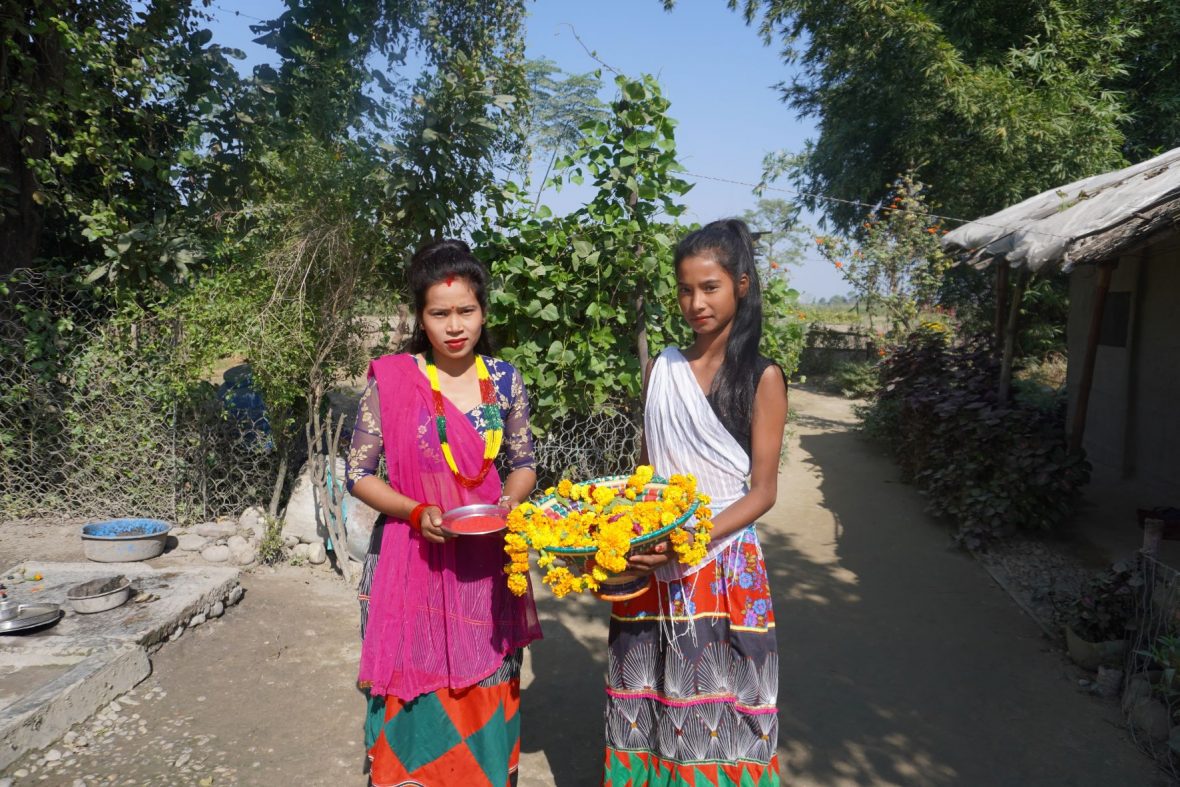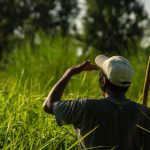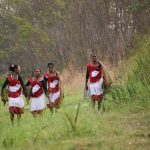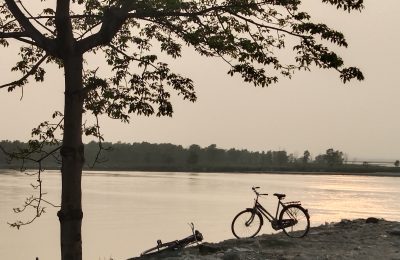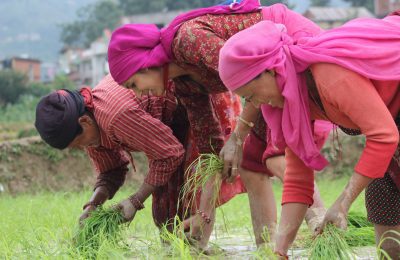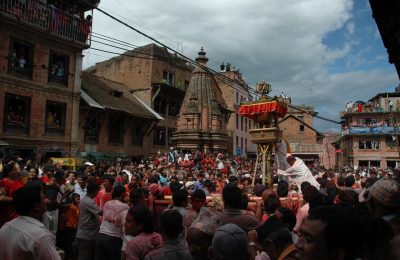Today the Sonaha are poor, landless and struggling to protect their livelihood and identity. Armed guards in Bardiya National Park often harass and beat them simply for lingering around the river. Their boats get smashed and their fishing nets confiscated. Some are languishing in jail for alleged wildlife crimes; others have had to take loans to pay fines. The future of the younger generation looks bleak.Many other communities who have long lived off the forest and river, such as the Majhi, Bote, Musahar and Malaha, suffer the same fate. The only option they have been given is to forsake their way of life and try to “become like us”. (Ghale, 2018)
Struggles of the Tharu Sonaha Community Homestay
Tharu-Sonaha community in Rajapur, Bardiya is nested at the curve of the Karnali river. Just below the Karnali dam there are rice fields and nearby is the community of Tharus and Sonahas who run the Tharu-Sonaha Community Homestay. While the Tharus have been in the limelight of their socio-political struggle, the Sonaha people are heard about every now and then when someone finds interest to document their unique profession. While the government may not recognize their indigeneity and give them an official minority status, they are one of the marginalized minority communities and pursue a modest lifestyle. According to the 2011 census, there are 1200 Sonaha people spread across three districts in western Nepal. According to an entry to the Environmental Justice Atlas, they had been living in their ‘ancestral riverine territory’ even before Nepal was a state.
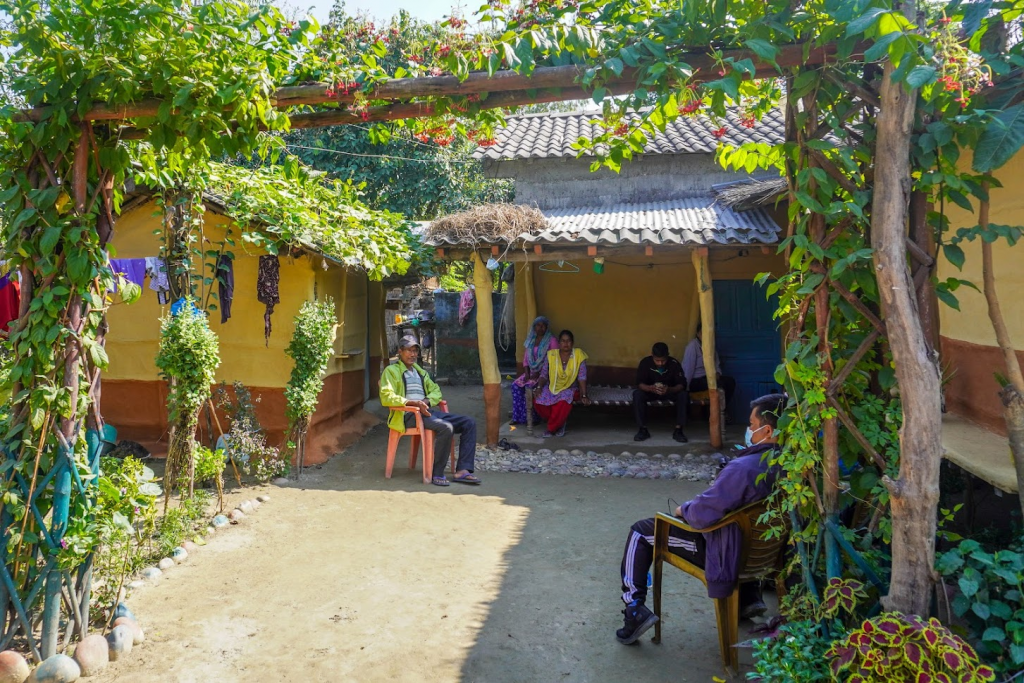
Dependence on the Karnali River
The Sonaha people are dependent on the river for its fish as well as the gold dust. Every time the flooding subsides, the river brings gold. They go out to weave the sand with water and look for speckles of glittery dust. They collect them and sell them to the local brokers who take them to the market in Nepalgunj. The process takes a lot of effort of panning gold and the money is rather an addition to other labor-based income earnings
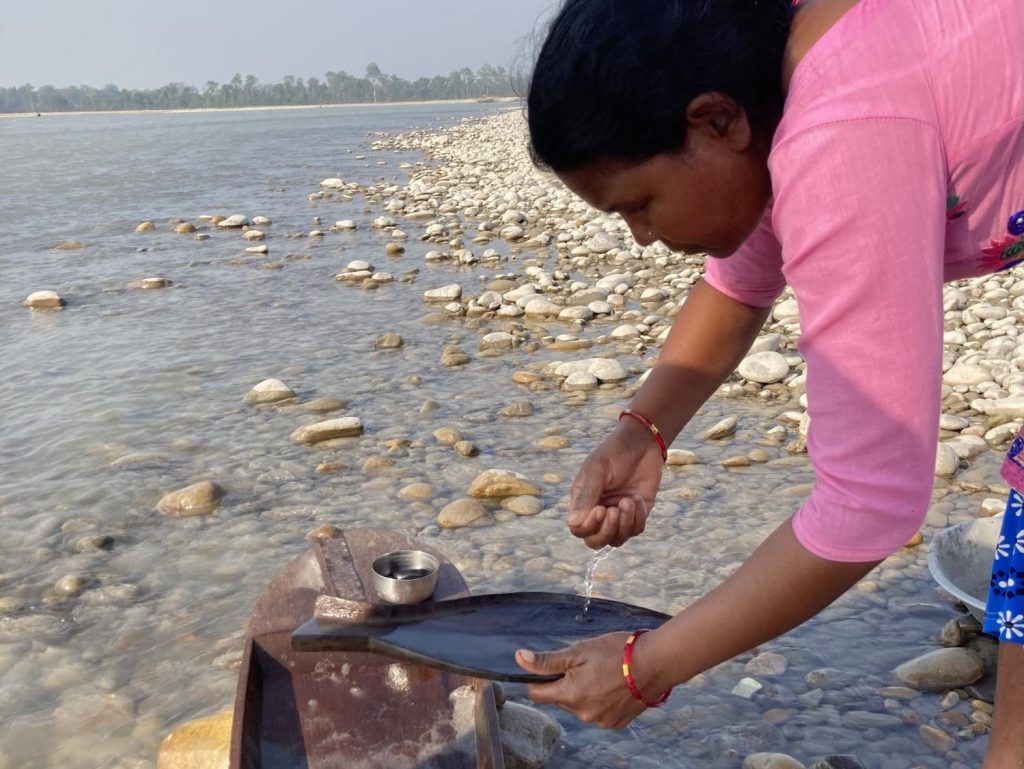
Empowering Through Community Homestays
Some Sonaha people here are tired of waiting for the flood. They got together with their Tharu neighbors and registered a community homestay. Couple of years later they have 8 homestay accommodations that can fit about 10-15 guests at a time. The Community Homestay provides canoe boat rides to those who are interested. Sitting knee-bent on a deep wooden canoe (of course with the life jacket on) and cruising on the longest river of Nepal is a thrill in itself. A visit to the river bank is also just enough to experience its majesty. The sun sprinkles its light on the vast water surface. The sand islands in the water show up in the dry season. The river looks almost sleepy when left alone. But when you dip your toe in the water you will feel the force with which it is making its way to the sea.
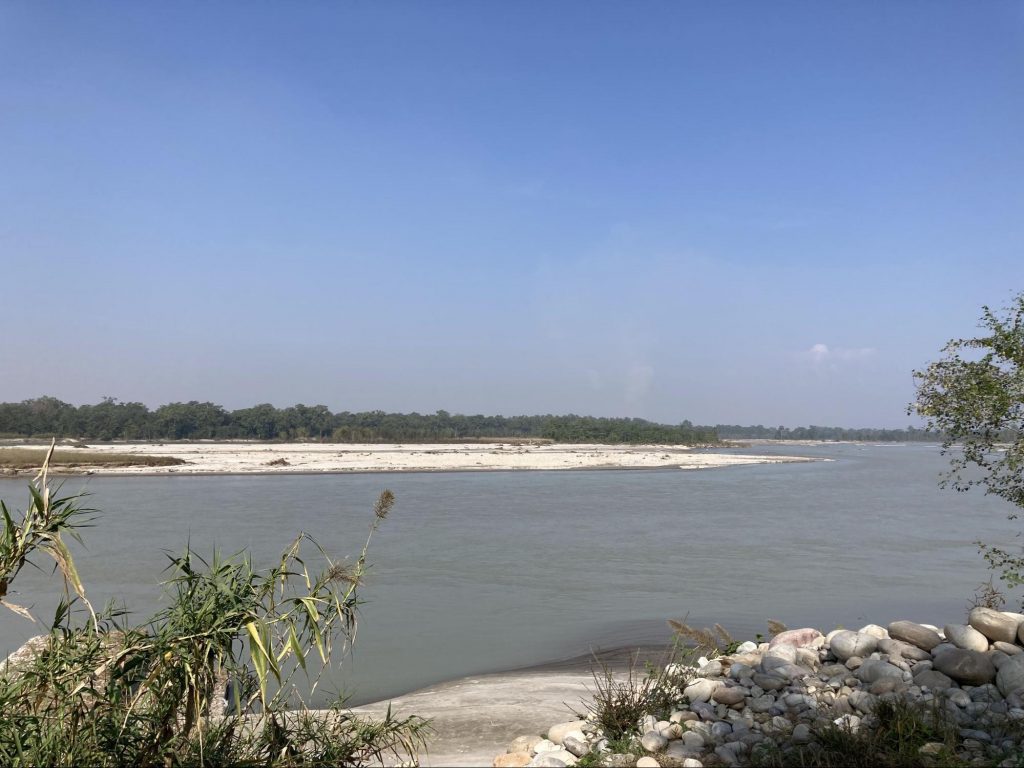
Despite anything and everything, the river flows. It builds on the elongated monsoon and brings with it tonnes of mud that accumulate in the fields and affect the paddy. Along with the rice husks, one can see dust burgeoning out of the rice mills. After the floods, some houses still carry the mounds of mud collected and some are still wet. People here want a respite from the river. Travelers and borderers are now providing them some of that relief. With travel benefits injecting into their households they can sustain themselves and their children. Many are dependent on their adult sons and daughters who have migrated elsewhere for jobs. But with the added income, they can spend, earn and reinvest locally. This income diversification adds to their prosperity.
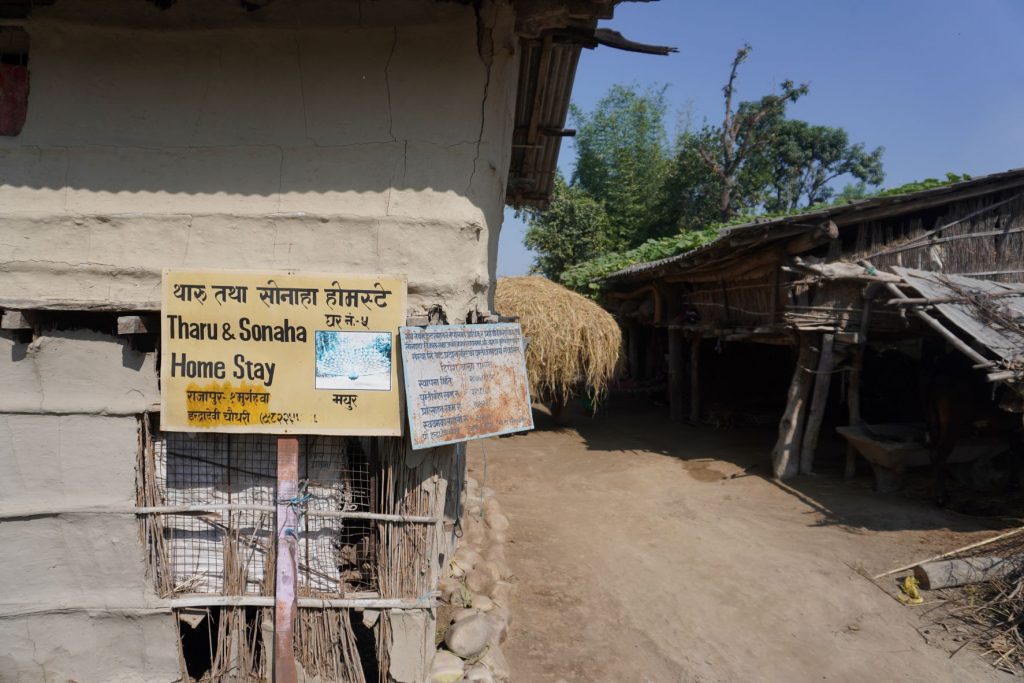
Tharu Sonahan Community Homestay
Nepal’s ethnic groups and their identities are much spoken about. But rarely are these identities acknowledged in terms of the inequalities and marginalization they have faced. So, even for a fellow Nepali person this community provides a rare learning opportunity. One can hear stories of how they had been forced to sell their land to other people at dirt cheap during the land reform of the 60s because they were threatened that the government would take their money through taxes if they owned land. This had contributed to their marginalization.

People here live a simple lifestyle. The nearby Rajapur bazaar supplies them with necessary modernities. The houses are lined up in a well-planned way. Simple mud houses decorated in Tharu style. Pigs, chicken and ducks are being raised on the side. Tubewells pull out groundwater for consumption and large meals are prepared outdoors.
Nature Conservation Perspectives
The Sonahas of western Nepal have faced a long conflict with the state. Ever since their lands were claimed by the state for conservation in the 70s, they have been shown as impeding the conservation of the river and forest ecosystem such as the Ganges river dolphins. Perhaps, a new outlook of their presence as conservation leaders can be built as they take up community homestay and community-based tourism activities just like the Tharus of the Dalla Communtiy Homestay preserving Bardiya’s forests.
As seen from the Tharu community’s relationship with Bardiya National Park’s wildlife in each other’s preservation, the Sonaha people’s dependence on the river and vice versa for its ecosystem might be a way out. The longest river Karnali, originating from Mount Kailash in Tibet is on the verge of exploitation more so by the haphazard infrastructure development and unplanned urbanization and exploitative agriculture rather than the outnumbered originally nomadic Sonaha population. It is high time the old narrative of them being ignorant landless communities changed to important nature conservationists.
This write-up is part of the baseline survey data collection for new community homestays carried out in November 2021 by the Community Homestay Network. Richa Neupane is the Impact and Sustainability Manager at Royal Mountain Group.


